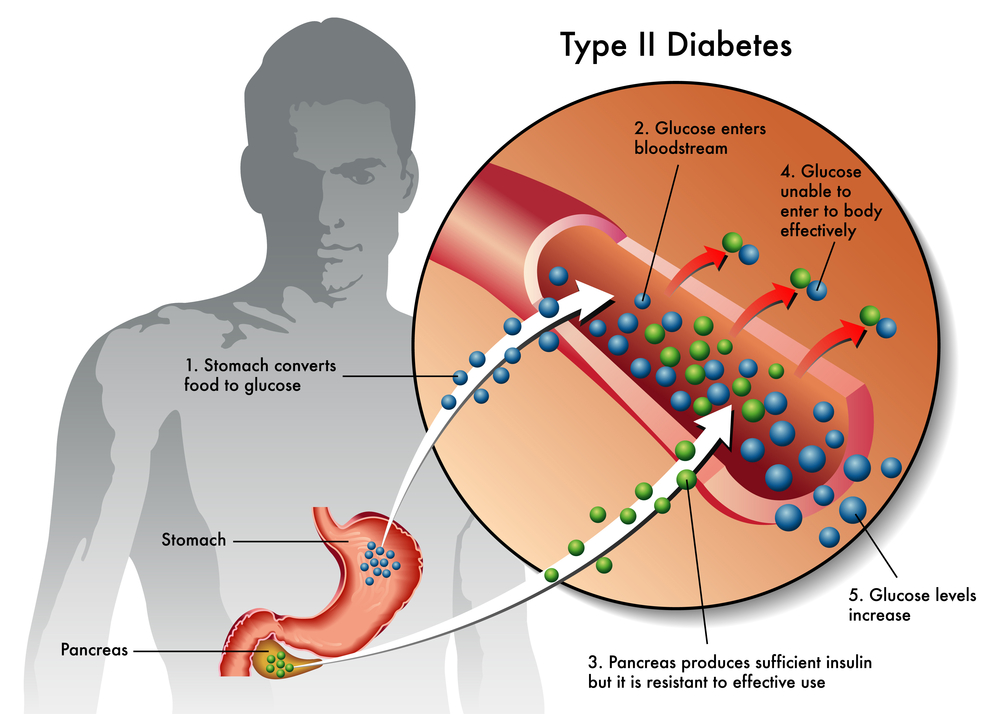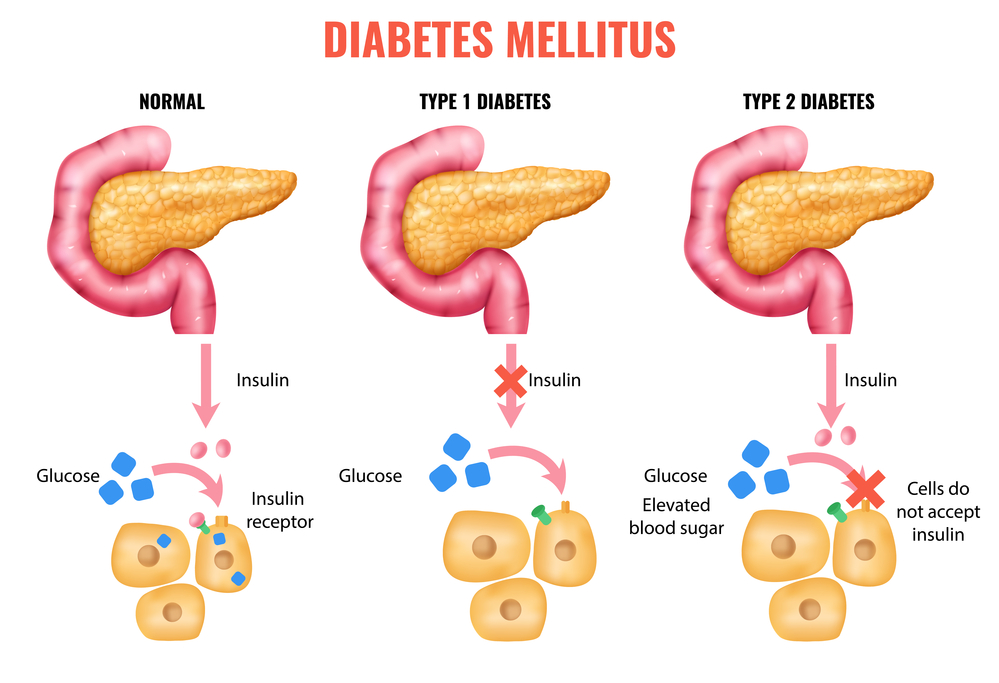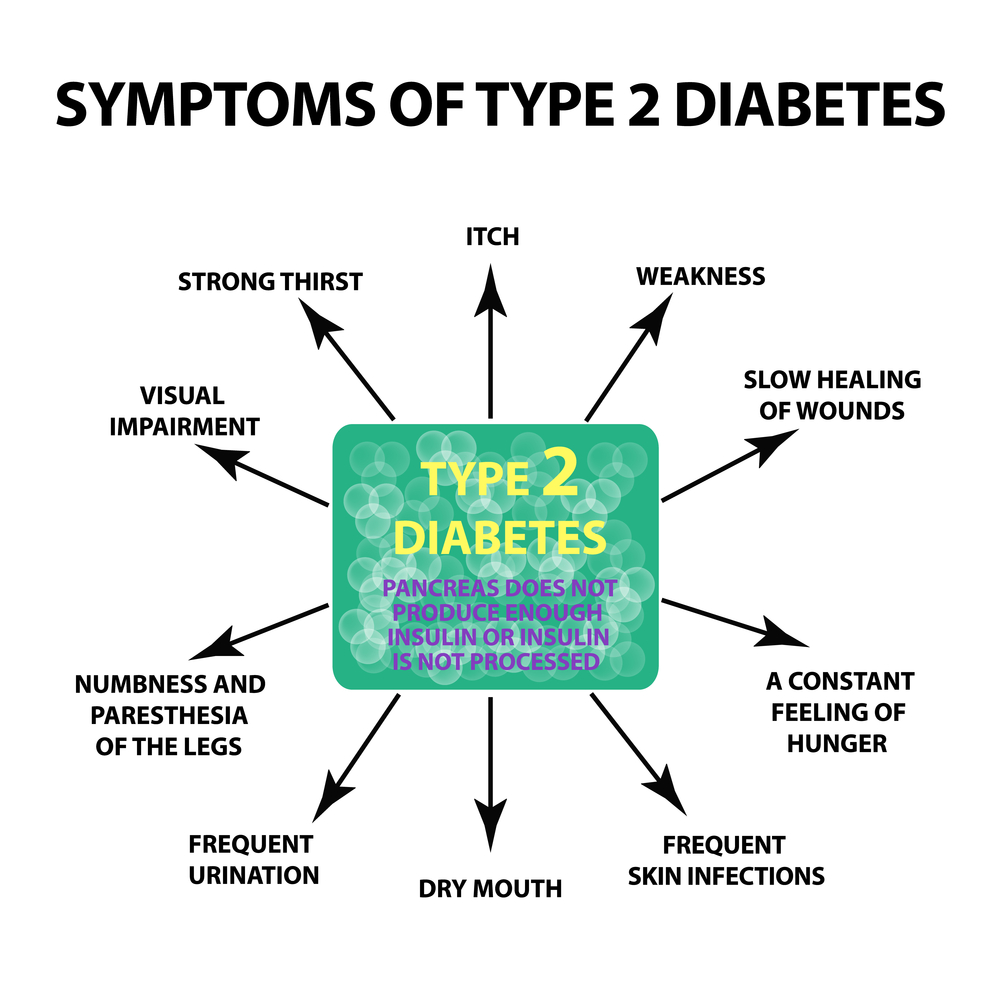What You Need To Know – Stages of Type 2 Diabetes
Type 2 diabetes is a complex chronic condition that develops in stages. Understanding these stages is crucial for early intervention and effective management. There are typical stages that evolve with Type 2 Diabetes. Those stages are Insulin Resistance, Pre-Diabetes, Diabetes, and Type 2 Diabetes with Complications. Join us as we shed light on each stage, providing valuable insights to help you navigate this journey toward better health.

STAGE 1: Insulin Resistance
The Silent Warning Insulin resistance is the initial stage of Type 2 diabetes, although it often goes unnoticed. During this stage, the body’s cells become resistant to insulin, a hormone that regulates blood sugar levels. Dr. Rachel Carter, an endocrinologist, explains, “Insulin resistance means the body has difficulty using insulin effectively, leading to higher blood sugar levels.” This stage may present with subtle symptoms such as fatigue, increased thirst, and frequent urination. Early intervention through lifestyle modifications, such as regular exercise and a balanced diet, can help improve insulin sensitivity.

STAGE 2: Pre-Diabetes; A Precursor to Diabetes
Pre-diabetes is a critical stage that acts as a warning sign before the onset of Type 2 diabetes. It is characterized by higher-than-normal blood sugar levels, but not yet reaching the diagnostic threshold for diabetes. Dr. Graham, a diabetes specialist, states “Pre-diabetes is a wake-up call to take action and prevent or delay the progression to diabetes.” Our providers in the clinic often recommend lifestyle changes, including weight loss, healthy eating habits, and regular physical activity, to reduce the risk of developing Type 2 diabetes. (See our ReSet, metabolic weight loss program, and how it can help you!)

STAGE 3: Diabetes
When blood sugar levels consistently remain elevated, a diagnosis of diabetes is made. This stage requires ongoing management to maintain optimal blood sugar control. One could say that Diabetes is a chronic condition that necessitates a multifaceted approach to maintaining target blood sugar levels. Treatment options may include medications, regular monitoring of blood sugar levels, meal planning, and physical activity. It is essential to work closely with our healthcare professionals to develop an individualized diabetes management plan.

STAGE 4: Type 2 Diabetes with Complications
If left uncontrolled, Type 2 diabetes can lead to various complications affecting different parts of the body. These complications may include cardiovascular disease, kidney problems, nerve damage, and eye complications. Dr. Graham, emphasizes, “Type 2 diabetes with complications requires comprehensive management to minimize the impact on overall health, our clinic has the right team to assist you in your health.” This stage necessitates close monitoring of blood sugar levels, regular medical check-ups, and proactive measures to prevent and manage potential complications.
The stages of Type 2 diabetes provide a roadmap to understanding the progression and management of this chronic condition. From insulin resistance to the development of complications, each stage carries its own significance. Early intervention, lifestyle modifications, and regular medical care are vital in preventing or delaying the onset of diabetes and managing its progression. By being proactive and working closely with our healthcare professionals, individuals can take control of their health and strive for optimal well-being. Remember, awareness and action are key on this journey towards better health and diabetes management. Give our office a call to set up your first visit, we accept new patients.

A couple of resources to learn more about the stages of Type 2 Diabetes:
www.niddk.nih.gov/health-information/diabetes
http://www.cdc.gov/diabetes
https://diabetes.org/


